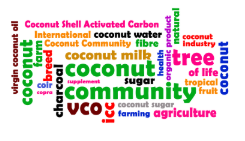Participatory technology transfer (PTT) – an innovative approach in root (wilt) affected coconut area
Abstract
The awareness, knowledge, attitude and adoption of the root (wilt) management practices were found to be very low among the farmers of root (wilt) affected area. This disease affects the socio economic conditions due to the reduction in coconut yield. Central Plantation Crops Research Institute, Kerala (India) has developed effective integrated management technology for improving the health and yield of disease affected palms. Due to the perennial nature, prevalence of the disease in the State for more than ten decades, attitude of the farming community and other social/economic constraints, the linear model of Transfer of Technology (TOT) could not create the desirable effect. Hence an innovative Participatory Technology Transfer (PTT) approach was implemented in severely root (wilt) affected district-Alappuzha during 1999-2003. The impact analysis indicated significant improvement in awareness (14 to 32.5), knowledge (19 to 59.5), attitude (22.5 to 36.5) and adoption (16 to 45.5) of practices as well as the scope for scaling up the TOT model in root (wilt) affected areas. The PTT enabled participation of major stakeholders in the TOT process. The categorization of the farmers indicated significant shift to the higher level of awareness from 63.00 to 92.00 %, higher level of knowledge from 14.00 to 74.50 % and higher adoption level from 27.50 to 57.00% after three years of PTT approach implementation.
References
Anonymous, 2001. Report. Directorate of Statistics and Economics, Ministry of Agriculture, Government of India, New Delhi, India.
CPCRI, 2000. Annual Report. Central Plantation Crops Research Institute, Kasaragod, Kerala, India.
ODA, 1995. Guidance note on how to do stakeholder analysis of aid projects and programmes. Social Development Department, Overseas Development Administration, London, pp. 17-19.
Payalgogia, 1999. Developing a strategy for coconut production in Andaman and Nicobar Islands. Unpublished M.Sc. (Ag.) Thesis, Tamil Nadu Agricultural University, Madurai, India.
Rajkamal, P. J. and Kunzru, O. N. 1998. A scale to measure attitude of farmers towards goat rearing. J. Extn. Edn. 4: 2177-2182.
Salunke, G.V.1978. A scale to measure small farmers’ attitude towards SFDA. Indian J. Exten. Edu. 14 (1&2): 66-69.
Syamkumar, B. Y. 1999. Extension intervention for sustaining rice production. Unpublished M.Sc. (Ag.) Thesis, Kerala Agricultural University, College of Agriculture, Vellayani, Kerala, India.
Thurstone, L. S. and Chave, E. C. 1929. Measurement of Attitude. University of Chicago Press, Chicago, USA.
Vinothkumar, 2002. Knowledge and adoption of recommended coconut farming practices in Thiruvananthapuram District. Unpublished M.Sc. (Ag.) Thesis, Annamalai University, Anamalai Nagar, Tamil Nadu, India.











